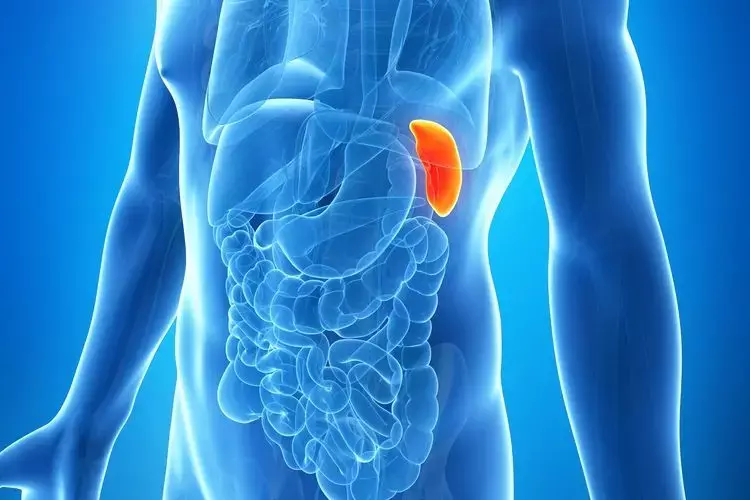- Home
- Medical news & Guidelines
- Anesthesiology
- Cardiology and CTVS
- Critical Care
- Dentistry
- Dermatology
- Diabetes and Endocrinology
- ENT
- Gastroenterology
- Medicine
- Nephrology
- Neurology
- Obstretics-Gynaecology
- Oncology
- Ophthalmology
- Orthopaedics
- Pediatrics-Neonatology
- Psychiatry
- Pulmonology
- Radiology
- Surgery
- Urology
- Laboratory Medicine
- Diet
- Nursing
- Paramedical
- Physiotherapy
- Health news
- Fact Check
- Bone Health Fact Check
- Brain Health Fact Check
- Cancer Related Fact Check
- Child Care Fact Check
- Dental and oral health fact check
- Diabetes and metabolic health fact check
- Diet and Nutrition Fact Check
- Eye and ENT Care Fact Check
- Fitness fact check
- Gut health fact check
- Heart health fact check
- Kidney health fact check
- Medical education fact check
- Men's health fact check
- Respiratory fact check
- Skin and hair care fact check
- Vaccine and Immunization fact check
- Women's health fact check
- AYUSH
- State News
- Andaman and Nicobar Islands
- Andhra Pradesh
- Arunachal Pradesh
- Assam
- Bihar
- Chandigarh
- Chattisgarh
- Dadra and Nagar Haveli
- Daman and Diu
- Delhi
- Goa
- Gujarat
- Haryana
- Himachal Pradesh
- Jammu & Kashmir
- Jharkhand
- Karnataka
- Kerala
- Ladakh
- Lakshadweep
- Madhya Pradesh
- Maharashtra
- Manipur
- Meghalaya
- Mizoram
- Nagaland
- Odisha
- Puducherry
- Punjab
- Rajasthan
- Sikkim
- Tamil Nadu
- Telangana
- Tripura
- Uttar Pradesh
- Uttrakhand
- West Bengal
- Medical Education
- Industry
Early Spleen Aminopeptide Therapy Promising for Seasonal Allergic Rhinitis, reveals research

A recent study highlighted the effectiveness of spleen aminopeptide oral solution in the prevention and treatment of seasonal allergic rhinitis (SAR). The findings were published in the Chinese Journal of Preventive Medicine.
This research was conducted by the Department of Allergy at Beijing Shijitan Hospital, Capital Medical University, in collaboration with Hohhot First Hospital. The study was carried out from April to May 2023 and involved 392 patients selected from an epidemiological investigation into allergic diseases in the region.
The patients were randomly divided into 2 groups with a 3:1 ratio where one was a treatment group (296 cases) and the other was a control group (96 cases). The treatment group received spleen aminopeptide oral solution for 12 weeks, starting 4 to 6 weeks before the pollen dispersal period, while the control group was administered a placebo. Both groups could use antihistamines and nasal glucocorticoids as needed during the pollen season.
The study revealed significant improvements in nasal and ocular symptoms among patients treated with spleen aminopeptide. Nasal congestion, nasal itching, sneezing, runny nose, and tearing were significantly reduced in the treatment group when compared to the control group (P<0.05). The patients in the treatment group showed marked improvement in eye-related symptoms, including itching, foreign body sensation, and redness.
Antihistamine drug scores were significantly lower in the treatment group at both 6 and 12 weeks when compared to the control group (P<0.05). The total drug usage scores were also reduced, indicating a decreased reliance on additional medications.
The overall quality-of-life scores improved significantly in the treatment group by highlighting the broader benefits of spleen aminopeptide therapy beyond symptom relief. Serum levels of IL-17A, a cytokine associated with inflammation, were significantly reduced in the treatment group after 6 and 12 weeks of therapy (P<0.05), suggesting an immunomodulatory mechanism underlying the therapeutic effects.
The study employed rigorous statistical methods to validate its findings, where the symptom scores, drug scores, and quality-of-life metrics consistently favored the treatment group by demonstrating the efficacy of spleen aminopeptide oral solution.
The research underlines the potential of early intervention with spleen aminopeptide oral solution to reduce the impact of SAR. By reducing symptoms, medication use, and inflammatory markers, this treatment offers a promising new avenue for improving patient outcomes. Overall, this study not only highlights the therapeutic value of spleen aminopeptide but also opens doors to further exploration of its immunomodulatory properties.
Reference:
Shi, H. Y., Zheng, K. L., Fan, C. E., Cai, H. J., Ma, T. T., Ning, H. Y., Wang, H. T., Zhang, J. J., & Wang, X. Y. (2024). Zhonghua yu fang yi xue za zhi [Chinese journal of preventive medicine], 58(8), 1219–1229. https://doi.org/10.3760/cma.j.cn112150-20240131-00106
Neuroscience Masters graduate
Jacinthlyn Sylvia, a Neuroscience Master's graduate from Chennai has worked extensively in deciphering the neurobiology of cognition and motor control in aging. She also has spread-out exposure to Neurosurgery from her Bachelor’s. She is currently involved in active Neuro-Oncology research. She is an upcoming neuroscientist with a fiery passion for writing. Her news cover at Medical Dialogues feature recent discoveries and updates from the healthcare and biomedical research fields. She can be reached at editorial@medicaldialogues.in
Dr Kamal Kant Kohli-MBBS, DTCD- a chest specialist with more than 30 years of practice and a flair for writing clinical articles, Dr Kamal Kant Kohli joined Medical Dialogues as a Chief Editor of Medical News. Besides writing articles, as an editor, he proofreads and verifies all the medical content published on Medical Dialogues including those coming from journals, studies,medical conferences,guidelines etc. Email: drkohli@medicaldialogues.in. Contact no. 011-43720751


